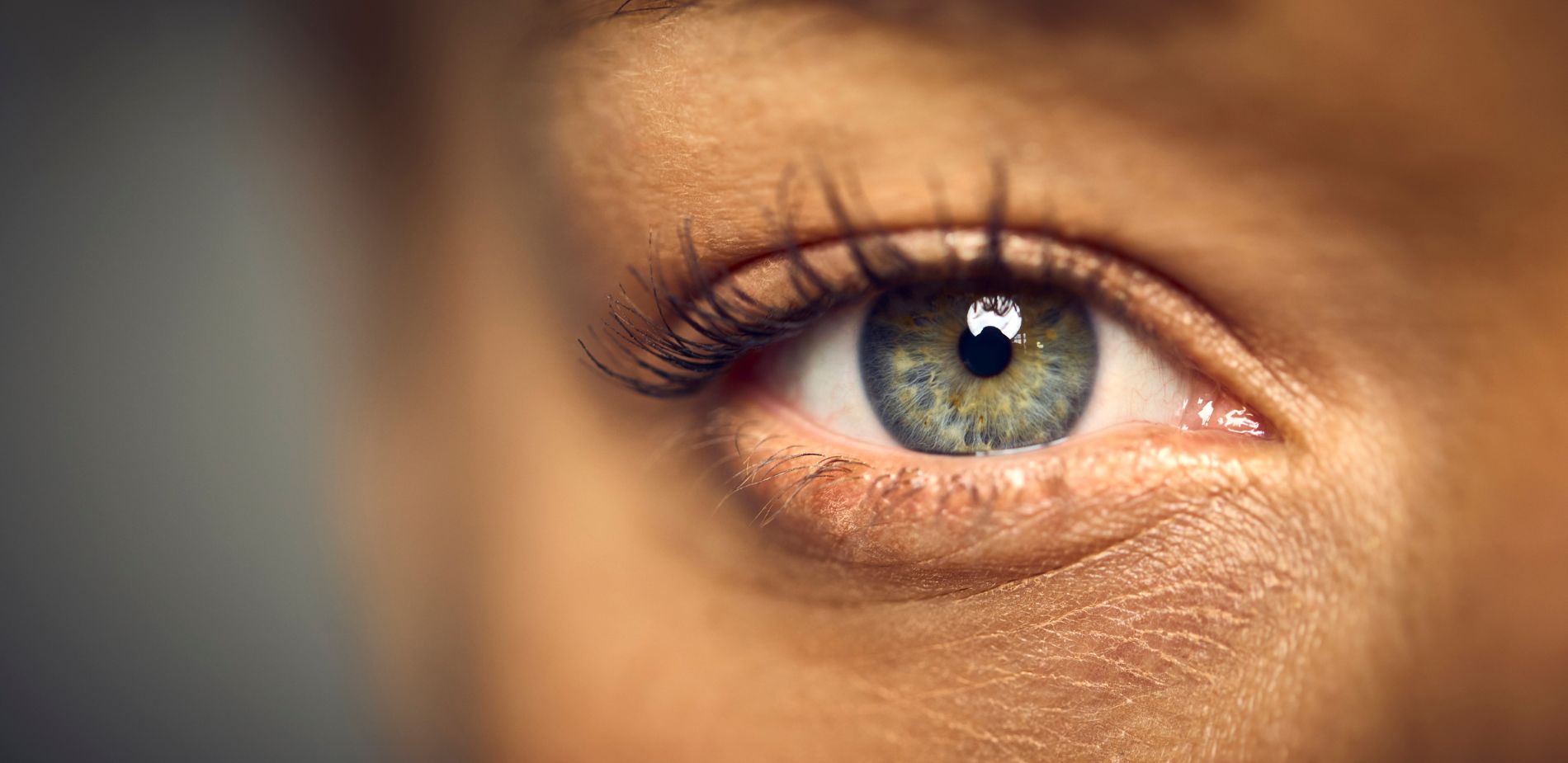
Lutein: The Key to Maintaining Healthy Eyes and Vision
| Isabelle Lee
In today’s digital age, our eyes are constantly under strain. Whether it’s staring at screens for work, watching TV, or even using our smartphones, we spend more time than ever focused on our devices. This can lead to digital eye strain, fatigue, and even long-term vision problems. However, protecting our vision goes beyond reducing screen time—it also involves maintaining good eye health with the right nutrients. One such nutrient that is incredibly beneficial for your eye health is lutein.
In this blog post, we’ll dive into what lutein is, how it benefits your eye health, and why you should consider incorporating it into your daily routine to preserve your vision for years to come.
What is Lutein?
Lutein is a naturally occurring antioxidant that belongs to the carotenoid family. Carotenoids are pigments found in plants that are responsible for the vibrant red, orange, and yellow colors of many fruits and vegetables. Lutein, specifically, is a yellow pigment and is found in high concentrations in leafy green vegetables, such as spinach, kale, and collard greens, as well as in yellow vegetables like corn, peppers, and egg yolks. It is one of two carotenoids, along with zeaxanthin, that are found in high concentrations in the retina of the eye.
Lutein plays an important role in protecting the eyes from oxidative stress, which occurs when free radicals damage cells. This oxidative damage can contribute to various eye conditions, such as macular degeneration, cataracts, and diabetic retinopathy. Lutein’s antioxidant properties help prevent or mitigate the effects of oxidative stress by neutralizing these free radicals, ensuring that your eyes remain healthy.
The Role of Lutein in Eye Health
Lutein is often referred to as a “vision vitamin” because of its powerful impact on eye health. It specifically benefits the macula, a small but critical part of the retina that is responsible for sharp, central vision. The macula contains the highest concentrations of lutein and zeaxanthin, which filter out harmful blue light and provide antioxidant protection.
Here’s a closer look at how lutein supports your eye health:
1. Protection Against Blue Light Damage
In today’s world, we are constantly exposed to blue light, whether it’s from our phones, computers, or televisions. While blue light is a natural part of sunlight, the increase in screen usage has led to higher-than-ever exposure, which can contribute to digital eye strain and, over time, may damage the retina.
Lutein, along with zeaxanthin, helps filter out blue light. The macula acts as a natural shield for the retina by absorbing blue light before it can cause harm. Studies suggest that lutein can significantly reduce the amount of blue light that reaches the retina, helping protect the eyes from the long-term effects of blue light exposure.
2. Prevention of Age-Related Macular Degeneration (AMD)
One of the leading causes of vision loss in older adults is age-related macular degeneration (AMD), a condition that affects the macula and can lead to permanent vision impairment. The macula is crucial for tasks such as reading, driving, and recognizing faces, and AMD causes it to deteriorate over time.
Lutein has been shown to reduce the risk of AMD by protecting the macula from oxidative damage. By increasing lutein levels in the retina, individuals may slow the progression of AMD and maintain better vision. Some studies suggest that regular intake of lutein can significantly reduce the risk of AMD-related vision loss in older adults.
3. Improved Visual Acuity and Contrast Sensitivity
Visual acuity refers to the sharpness or clarity of vision, and contrast sensitivity is the ability to distinguish between different shades of light and dark. Lutein is known to improve both of these aspects of vision. It enhances the sharpness of vision by protecting the retina from damage and improving the functioning of the macula.
In fact, research has shown that lutein supplementation can result in improved contrast sensitivity, meaning you can better discern objects in low-light conditions. This is especially important for activities like night driving or any situation where visibility is compromised.
4. Reducing Eye Fatigue
Eye fatigue is a common problem for people who spend long hours in front of screens or perform tasks that require intense focus. Symptoms of eye fatigue include dry eyes, blurred vision, headaches, and difficulty focusing. While there are many factors that contribute to eye fatigue, one of the main culprits is the overexposure to blue light.
Lutein’s ability to filter blue light not only helps protect the eyes from long-term damage, but it also reduces the immediate symptoms of digital eye strain. Supplementing with lutein can alleviate eye discomfort, reduce the feeling of fatigue, and improve overall comfort during screen-heavy activities.
Lutein and Overall Eye Health
Beyond the specific benefits mentioned above, lutein contributes to overall eye health by supporting a healthy retinal environment. The retina is the light-sensitive layer of tissue at the back of the eye that converts light into electrical signals, which are then sent to the brain. Lutein helps maintain the structural integrity of the retina, ensuring that it functions properly for optimal vision.
In addition to lutein, other nutrients like zeaxanthin, vitamin A, vitamin C, and omega-3 fatty acids are also important for maintaining healthy eyes. Together, these nutrients help to preserve vision, reduce inflammation, and protect the eyes from oxidative damage.
How to Incorporate Lutein Into Your Routine
One of the best ways to ensure you’re getting enough lutein is by consuming foods that are rich in this antioxidant. Here are some lutein-rich foods you can include in your diet:
- Leafy Greens: Kale, spinach, and collard greens are excellent sources of lutein.
- Yellow Vegetables: Corn, peppers, and squash are also rich in lutein.
- Eggs: The yolk of an egg is a good source of lutein and zeaxanthin.
- Other Sources: Carrots, peas, and broccoli also provide lutein.
In addition to food sources, you can consider supplementing your diet with lutein, especially if you have trouble getting enough from food alone. A lutein supplement is an easy and effective way to ensure you’re supporting your eye health, particularly if you spend a lot of time in front of screens.
Lutein Supplements: What to Look For
When choosing a lutein supplement, it’s important to look for high-quality products that provide a sufficient amount of lutein. Many supplements come in combination with other nutrients, such as zeaxanthin or vitamin E, which work together to enhance the effectiveness of lutein. It’s also a good idea to choose supplements from reputable brands that use natural sources of lutein, such as marigold flowers, which are rich in the carotenoid.
If you're considering adding lutein supplements to your routine, it’s always a good idea to speak with a healthcare provider, especially if you have any existing eye conditions or health concerns.
Conclusion
Lutein is a powerful antioxidant that plays a crucial role in protecting and maintaining eye health. From filtering blue light to reducing the risk of age-related macular degeneration, lutein has a wide range of benefits that support healthy vision. By incorporating lutein-rich foods into your diet or taking a high-quality supplement, you can help preserve your vision and keep your eyes functioning at their best.
In today’s digital world, where our eyes are constantly exposed to screens, taking steps to protect our eye health is more important than ever. Start prioritizing your eye health with lutein today, and your future self will thank you.

Leave a comment
Your email address will not be published.